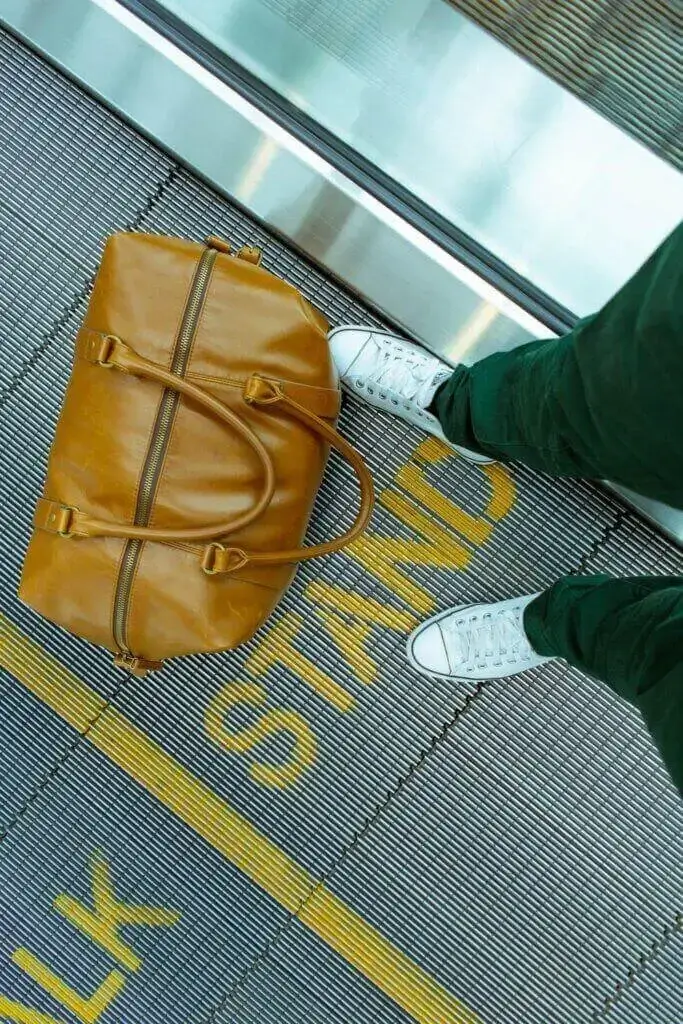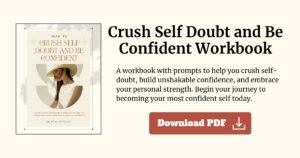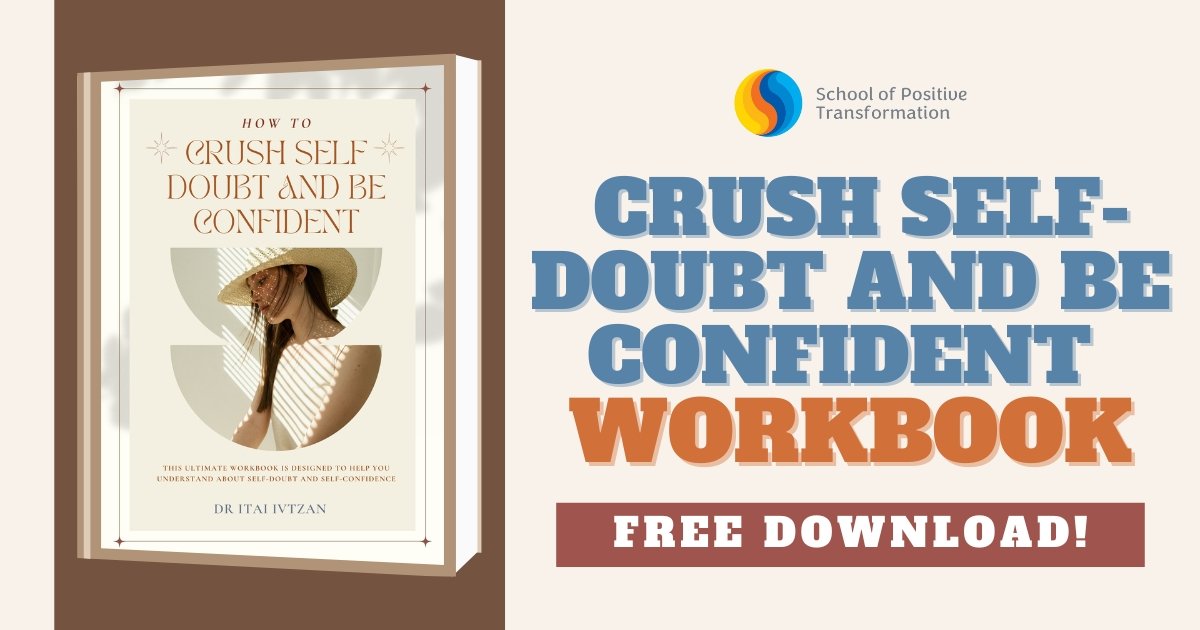Character Strengths: Developing Bravery
 Bravery is considered as one of the 24 psychological character strengths and one that we all would love to develop. Here in the article, I will share a simple story about being brave as faced adulthood in my early years and the other things about bravery and how to develop it. When I first planned to ride a plane, it was exhilarating. I was super excited but also scared, I was about to go on an eight-day vacation and I wanted to pack everything, it was my first solo travel and I challenged myself by just having a carry-on bag for the whole stay.
Bravery is considered as one of the 24 psychological character strengths and one that we all would love to develop. Here in the article, I will share a simple story about being brave as faced adulthood in my early years and the other things about bravery and how to develop it. When I first planned to ride a plane, it was exhilarating. I was super excited but also scared, I was about to go on an eight-day vacation and I wanted to pack everything, it was my first solo travel and I challenged myself by just having a carry-on bag for the whole stay.
Before you continue you might like to consider our free worksheet on exploring “Crush Self-doubt and Be Confident”. Please download this worksheet here.
Conquering the Fear of Just Having A Carry-On Baggage
I was 16 at that time and I likened going through adulthood and opting to just have a carry on bag for a week stay, as just as scary. It was a challenge for me, it was like taking a big leap in life—generally. Leaping is scary but I learned that fearing won’t take you anywhere further than where you are at the moment. Growing up, we face moments where we have to make that big decision for a dream or yourself, for family or people around you, and maybe, even for your relationship. I have NEVER traveled anywhere with just a carry on bag. I initially believed that maybe it’s impossible. Because I believe that I have a lot of things that I will need or I want to have with me, the reason why I have thoughts that I can never put up with just a 7 kg bag for a week’s travel. I’m used to just stashing everything want to bring on my bags and voila! I don’t care about what things I won’t get to use. For most of my solo trips, I was always with a backpack and a big tote bag. But then as I took the challenge, I’m testing my limits. I learned too, that fears can’t kill me, but it could kill the experience. So yes, I said to myself, I will stick and do it!
Packing was the hardest part,
- I had to choose wisely what to bring and what I won’t.
- I had to painstakingly plan what I would wear every day and night.
- I had to fold my clothes nicely so my bag won’t bulge and of course if in case I short of anything to wear, I will just wash my clothes.
- I learned to organize my things and pay attention to the necessary things; just like how at growing up, we come to realize the things that matter, people that we’d like to keep.
There is bravery when we prioritize the things worth our time and attention, truth is I learned to ignore the unnecessary burdens that would haunt me mentally, I learned to not dwell on things that I don’t want in my life. I learned that as we grow old it’s fitting to say that it is necessary that at some point, you cut the ties with people who do not have your best interest at heart. I mean why bother yourself with the hate and spite when you can just let them go and be at peace. We let go of our intense attachments to worldly things and people, it is an act of bravery to know and acknowledge that some things can be temporary so you pick the ones that are worth traveling with. There are things that we leave behind knowing you can get them later on, or maybe you just don’t need it for the leap ahead. For a carry on bag to be less than or exactly 7 kg is spot on with the thought that we can leap with lesser baggage as to what you are used to having. That leaving things behind isn’t so bad at all. It doesn’t mean that you don’t need it, maybe you are just leaving them behind because you know you actually can have access to them at your destination. For example, soap and hair products and some other toiletries. I chose to leave them at home since I know I can just buy them somewhere. Just like when you come to a point where you have to loosen your ties with some people you used to be so close with. You are not cutting your ties to them completely, you just lose it to move further, to grow broader. You know that maybe you two not be speaking to each other but someday when everything had gone to their rightful places you’ll just laugh at how tough growing up had been for the two of you. But it’s not just people. For one to actually leap with lesser baggage, we also can opt to leave some of our old ways, maybe some of our old thoughts and views too. We open ourselves to the possibility of discovery and further growth and satisfaction when we let go of other things. I too had to pick ahead what to wear to the airport for I’d rather pick using the heavier shoes than it is added on my carry-on bag weight. I learned that if you want to bring something you can wear that is too heavy for carrying, then wear it. Like if you no longer can carry the heavy feeling you have, carry it; cry or share your problem to an eager ear who would listen to your whims. It is okay and it is very brave of you when you choose to express your emotions.
Virtues and Character Strengths: Courage vs. Bravery
Martin Seligman (the father of positive psychology), together with Christoper Peterson introduced the Values In Action (VIA) Classification in their book, Character Strengths and Virtues. According to this classification, there are 6 major virtues with 24 character strengths that are subcategorized in it. Courage is considered as a virtue that consists of strengths that help you exercise your will (your sense of choice) and to face tough decisions and situations. There are four strengths under this virtue and these are: bravery, honesty, perseverance, and zest According to viacharacter.org: “To be brave is to face your challenges, threats, or difficulties. It involves valuing a goal or conviction and acting upon it, whether popular or not. A central element involves facing – rather than avoiding – fears.”
 Types of Bravery
Types of Bravery
An individual may possess one of these or a combination of there is three types of bravery:
- Physical bravery (e.g., firefighters, police officers, soldiers)
- Psychological bravery (e.g., facing painful aspects of oneself, like thoughts, emotions, experiences, and actions)
- Moral bravery (e.g., speaking up for what’s right, even if it’s an unfavorable opinion to a group; standing up to uphold your morals and values)
Bravery in Everyday Life
There are moments in our everyday life that we wished we were a lot braver to take on. You may not realize it outright but lack of bravery can come in the form of not taking action, not doing any progress with work, yes even our moments of procrastination! Bravery is a character strength that is a combination of mental toughness + knowledge + confidence. We need bravery to be able to make and stand by every tough decision, to take action and prevent wasting time, and to be able to act on and approach uncomfortable situations with confidence, grace, and efficiency. Bravery is used in everyday tasks, it can be as simple as taking on new tasks at work, confront others who crosses your line, and also in those times that you feel like you are not enough and afraid of being less than perfect that your work suffers (because you can’t seem to start or go on a task). When you become braver, you become more capable of taking action and handling the things that come your way.
So how and why should you develop your bravery? Bravery is not something you’re born with, and it’s not something you can acquire overnight. It is something that you can train to develop and slowly learn. Like the other 24 character strengths, bravery is something you can work at developing by training and constant practice. Joel Runyon at Impossible HQ breaks the bravery development process down plainly. If you want to be braver, you need to:
- Be terrified of something.
- Do it anyway.
- Be moderately less scared than the first time you do it.
- Repeat
Otherwise, there’s only one alternative:
- Be terrified of something.
- Do nothing
- Still, be terrified
As one of the character strengths, bravery is not about jumping without knowing the risks, although it says “do it anyway”. Bravery is more about knowing the risks and learning how to repeatedly turn uncertainty—which is what drives most of our fear—into approachable, more calculated risks. It truly is hard to be brave about something that you’ve never been exposed to. But by doing what you scares you, little by little, you slowly, but surely take away the uncertainty of it all. If you’re afraid of swimming in open waters, try to go just up on the shore. At first, try to just wade on the smooth water that comes in, but just enough that you’re still afraid. Let yourself experience the fear. Feel it. Next time, go a little further and submerge up until your knees, of course, you should do this only if you know that the water does not go deep yet for quite a few more meters. This is what knowing the risk meant, you know that the water does not go neck-deep yet and that the waves are calmer that you can still walk through it and you have someone with you that knows how to swim and knows when it is best to try walking on the beach (no big, rough waves). As you go, you’ll see how small the risk really is, and you’ll be braver for it. It’s how everyone learns how to swim, although some people are just a lot comfortable on open water, therefore, better at combatting the initial fear. They learn how to handle things little by little, take what they’ve learned to help them mentally and physically prepare, and then apply it. By the time they swim into the ocean, only bravery remains.
3-Steps to Develop Bravery
Here are a few ways to boost your bravery and take every day on with courage.
-
Savor and remember the moments when you conquered your fear
When you do something brave, try to remember and take in that feeling in a mental note. Try to remember it as best you can by celebrating it, taking a picture, finding a keepsake, anything that will remind you of how courageous you were moment, how you conquered something that made you fear. No matter how small, it doesn’t really matter what it was, as long as you were brave. For example, when you have done a mistake at work and you were dreading to tell someone, but it had to be done, so you did, even as you feared it. Once you finally got it over with, think about that moment when you said to yourself, “here goes nothing…” Gay Norton Edelman at Family Circle calls these times “power moments” Try to notice those times when you’re feeling strong and competent. Pause and take a few slow, deep breaths and tell yourself, “This is who I am.” The more you recognize when you’re being strong, the more fearless you’ll become. Big or small, brave moments are fuel for future brave acts. That fuel rolls over to any time you need it. When you’re scared, you can just remind yourself “hey, if I could do that, I can do this.”
-
Remember that your emotions can be used as tools
“Tools for what?” you may think, Robert Biswas-Diener, author of The Courage Quotient: How Science Can Make You Braver, suggests thinking of ways to get the anger flowing when you need a little bravery boost. If you get angry enough, for example, nothing will be able to douse the flames of your bravery. You may not normally be angry on a day-to-day basis, but that doesn’t mean you can’t stir some of it up and use it. We know that emotions are hard to control but trying to control anger is also one of the best ways to overcome the fear of any kind. When focused, emotions can be used to pump yourself up or even affect others in beneficial ways. How? You can work yourself into a courageous mindset by focusing on how your most precious values are being trampled. If you can find aspects of your situation that make you emotional, use them. Say you’re afraid to call someone out, for example; you can think about how they’re wasting your time, inconsiderate, or how they’re being disrespectful. Normally, you wouldn’t want to look for reasons to get angry, but anger can be a more valuable tool than you might think. Sometimes the need for bravery is more than the need to keep your head level. Just be sure that you only use that anger to fuel courage in doing beneficial things, not destructive things.
-
Look at the possibilities that you might be doing if only you were not afraid
Sometimes being brave is just a matter of looking at things from the outside. If you weren’t afraid would you actually be capable of doing what you need to do? Probably! If you weren’t afraid do you think you’d be better off as a person? Most likely! When you reflect and look at your situation from a different perspective, you may find that you really are capable of doing things wholeheartedly, without fear. And if you can’t seem to find bravery at the moment, just pretend that you’re not afraid. Others might see you as brave just the same, and who knows, you might just convince yourself that’s all in your head too. Fake it ’til you make it. Plus, the longer you wait, the tougher it can be to become brave. Imagine all the things you could get done if you weren’t afraid and you were brave instead.

Imagine if I did not take up the challenge of packing up a carry-on bag back then? Would I know that I can actually do it? Just like that very simple instance, I bet you also have other simple experiences that you can associate with bravery.
I realized that this is one of the character strengths that I want to further get in touch with so I am continuously developing this. I always make sure to acknowledge the times I conquered fear and celebrate my little wins over anxiety. I may be a long way but I always make sure to give myself credit!
If you’re ready to build confidence and tackle your fears with bravery, download our free Crush Self-Doubt and Be Confident Workbook here to help you grow stronger and more courageous every day.






